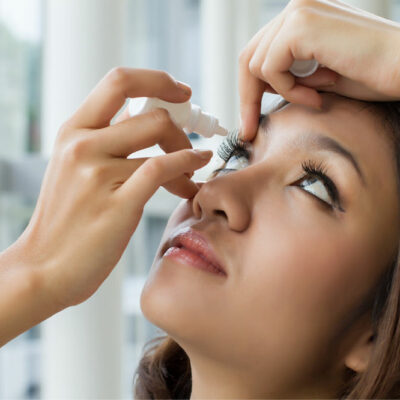Avoid these 5 foods for healthy skin

Maintaining healthy skin is not just about external skin care through creams and oils. Skin health is also affected by one’s food choices. As a variety of foods and supplements are advertised as “healthy” options, many may go for trending food products that do not offer long-term benefits for the body. Some might even cause skin issues and premature aging. So, here are five foods to avoid at all times to maintain healthy skin:
Fried food
Fried foods are high in fat, increasing the risk of heart disease. They contain trans fats, which may increase one’s risk of developing type 2 diabetes. Fried foods have also been shown to cause skin inflammation, making the skin more susceptible to breakouts or other problems like blemishes, wrinkles, and premature aging. While the precise impact of fried foods is still being studied, there is no denying that they are high in fat and calories. So, one should avoid foods like chips, French fries, donuts, and other deep-fried items to keep skin issues at bay.
Sugary beverages
Sugary beverages are one of the worst items for skin health. They can cause acne, wrinkles, and dry skin. The drinks contain excessive refined sugar, so they do not quench one’s thirst or hydrate the body but rather cause dehydration. So, even though people go for a sugary drink when they feel thirsty, the beverage only makes them lose more water from the body while adding calories via sugar. This is the reason why many are tempted to have more and more sugary beverages. As the beverages dehydrate the body, the skin becomes dry, leading to issues like acne and wrinkles. The excessive sugar in sweet drinks tends to reject the water and speed up dehydration. Nothing hydrates the body like plain water. So, to maintain and improve skin health, one should replace sugary beverages with vegetable juices and water. One can also opt for green tea or other herbal teas and juices as an alternative to sodas and sugary drinks.
Refined grains
As these grains are processed, they lose essential nutrients. Further, they can cause inflammation in the body, leading to acne breakouts. Refined grains also tend to be higher in calories, making them less healthy. Refined grains are also known to contain a lot of carbohydrates and can result in a spike in one’s blood sugar levels. So, one should avoid foods such as white bread (including whole wheat), bagels, and English muffins; white rice; instant oatmeal; breakfast cereals that contain sugar or syrup as an ingredient. These foods are made from wheat flour that has been refined through bleaching and then sifted before baking or cooking. Adding refined grains to meals over long periods can make the skin dry and wrinkled.
Processed foods
Processed foods are high in sodium, sugar, and fat and low in fiber and nutrients. Such food can be tempting because of its high sodium and calorie content, making one want to have it frequently. Such food can also cause premature aging by worsening inflammation and encouraging wrinkles, acne, and other skin issues. Processed foods may contain trans fats that also contribute to premature aging. Further, trans fats increase the risk of heart problems and other health issues. Processed foods are often high in salt and contain preservatives to increase their shelf life. However, these additions may increase the risk of developing health issues like heart disease. So one should avoid all kinds of processed food products, including meats like ham, sausage, hot dogs, pepperoni, beef jerky, and other deli meats. Further, processed meat also contains preservatives, artificial fillers, and flavors, which are added in large quantities to make them tastier and retain their color for a while. The artificial ingredients can exacerbate skin issues and worsen symptoms of skin diseases.
Milk and dairy products
Dairy products can increase the risk of acne, especially for those who are sensitive to these products. Milk has also been linked to inflammation as it contains whey protein that can stimulate excessive oil production. Here, skim milk is likely to cause inflammation and worsen symptoms of skin diseases, as it contains a significant amount of whey protein and sugar load. However, milk is known to affect complexion to a certain extent. Many doctors may recommend skipping milk for a few days or weeks if one is experiencing persistent skin issues. Dairy products can increase the amount of oil produced by the sebaceous glands. Sebum is a natural skin lubricant that acts as an essential barrier against bacteria, but too much of it can clog pores and lead to inflammation. Milk and dairy products may also cause dryness, making one look older than they are. Dry skin is characterized by flaky or peeling patches on the face or body. This can also lead to itchy, irritated skin that feels warm to the touch. If one experiences dry or itchy skin, they can often see that their skin looks dull. Further, one may be able to observe small open sores called acne lesions.
A common symptom of skin diseases is acne. It is caused by excess oils on the surface of the skin, causing inflammation that leads to redness and pus-like bumps. In some cases, the bumps may become infected or painful, however, often, the acne will fade away over time without treatment. It is essential to remember that the skin is the largest organ that can often indicate one’s overall health. While external skincare can help one tackle certain skin problems, making better lifestyle choices and adopting healthy eating habits is the best way to ensure long-term skin health. One should make a note of foods that trigger breakouts and other problems and try to avoid or limit these items. Maintaining a food log or journal can help one recognize and limit triggering foods. Further, avoiding food allergens and environmental irritants is crucial for preventing skin diseases and premature signs of aging.
















